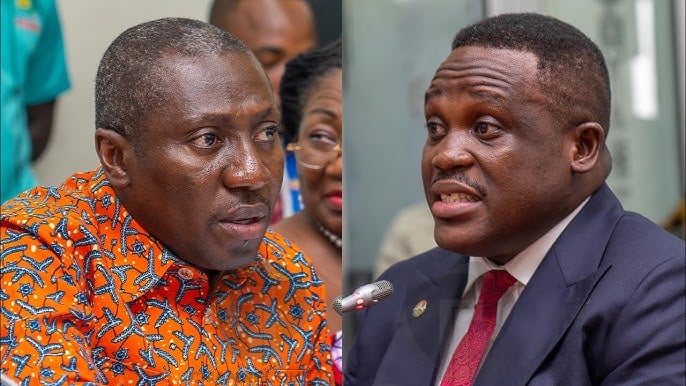The ongoing discourse surrounding the Ghana Broadcasting Corporation (GBC) has sparked a heated exchange between Communications, Digital Technologies, and Innovations Minister Sam Nartey George and Minority Leader Haruna Iddrisu. Minister George has publicly criticized the Minority Leader’s stance on the GBC issue, accusing him of being uninformed and lacking a comprehensive understanding of the subject matter. This critique highlights a broader concern regarding the Minority Leader’s alleged tendency to speak on issues without adequately researching or familiarizing himself with the relevant facts. Minister George’s remarks underscore the importance of informed decision-making and responsible public discourse, particularly for those holding leadership positions within the parliament.
The crux of Minister George’s criticism revolves around what he perceives as a pattern of ill-preparedness on the part of the Minority Leader. He suggests that the Minority Leader’s pronouncements on various issues often lack depth and accuracy, indicating a failure to engage with the complexities and nuances of the topics at hand. This alleged lack of due diligence, according to Minister George, undermines the credibility of the Minority Leader’s contributions to parliamentary debates and discussions. Furthermore, it potentially misleads the public and hinders constructive dialogue on critical national matters.
Minister George’s frustration is palpable in his public statement, where he explicitly questions the Minority Leader’s grasp of the GBC issue and expresses concern about the potential ramifications of such uninformed pronouncements. He argues that the Minority Leader’s approach to public discourse sets a negative precedent and undermines the integrity of parliamentary proceedings. The Minister emphasizes the importance of thorough research and fact-checking as prerequisites for meaningful engagement in public debates, particularly for individuals entrusted with leadership roles.
Beyond the specific GBC issue, Minister George’s criticism touches upon a broader concern regarding the Minority Leader’s approach to parliamentary business. He suggests that the Minority Leader’s alleged lack of preparation extends beyond individual policy matters and reflects a broader disregard for the rigorous analysis and informed deliberation that should characterize parliamentary proceedings. This perceived disregard, according to Minister George, hinders the effective functioning of the parliament and impedes progress on critical national issues.
The Minister’s pointed reference to the Minority Leader’s mispronunciation of his middle name during his vetting before the Appointments Committee serves to further illustrate his point. Minister George asserts that this seemingly minor error is symptomatic of a larger pattern of inattention and lack of thoroughness. He argues that the Minority Leader’s failure to correctly note his name, despite having access to his CV, reflects a broader disengagement from the details and specifics that are crucial for informed decision-making.
In essence, Minister George’s critique of the Minority Leader underscores the critical importance of informed and responsible leadership within the parliament. He argues that effective leadership necessitates thorough preparation, a commitment to accuracy, and a willingness to engage with the complexities of policy issues. The Minister’s public rebuke serves as a call for greater accountability and a reminder of the crucial role that informed decision-making plays in the functioning of a democratic society. His emphasis on the need for factual accuracy and thorough research highlights the importance of these elements in ensuring the integrity of parliamentary processes and fostering constructive public discourse.


